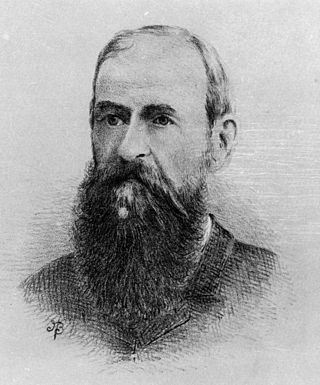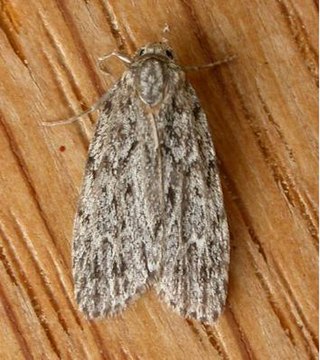Related Research Articles

Thomas Pennington Lucas, also known as T.P. Lucas, was a Scottish-born Australian medical practitioner, naturalist, author, philosopher and utopianist.

Halone is a genus of moths in the subfamily Arctiinae from southern Asia and Australia. The genus was erected by Francis Walker in 1854.

Nudaria is a genus of moths in the subfamily Arctiinae erected by Adrian Hardy Haworth in 1809.

Schistophleps is a genus of moths in the family Erebidae first described by George Hampson in 1891.
Heterorta is a monotypic moth genus of the family Noctuidae described by Warren in 1913. Its only species, Heterorta plutonis, was first described by Thomas Pennington Lucas in 1894. The species is known from Australia where it has been found in Queensland, New South Wales and Victoria.

Platyja is a genus of moths of the family Erebidae erected by Jacob Hübner in 1823.

Polydesmiola is a genus of moths that belongs to the family Erebidae. The genus was described by Embrik Strand in 1916.
Sympis parkeri is a moth of the family Noctuidae first described by Thomas Pennington Lucas in 1894. It is endemic to the Australian state of Queensland.
Rivula concinna is a moth of the family Erebidae first described by Thomas Pennington Lucas in 1895. It lives in Australia in Queensland, Western Australia and the Northern Territory.

Pantydia capistrata is a moth of the family Erebidae. It is found in Fiji, New Guinea and Australia, including New South Wales and Queensland.
Chamaita barnardi is a moth of the family Erebidae first described by Thomas Pennington Lucas in 1894. It is found in Australia.
Eressa angustipenna, the black-headed wasp moth, is a moth of the family Erebidae. It was described by Thomas Pennington Lucas in 1890. It is found in Australia, as well as the Philippines.
Nudaria mollis is a moth of the subfamily Arctiinae first described by Thomas Pennington Lucas in 1894. It is found in Queensland, Australia.
Schistophleps albida is a moth in the family Erebidae. It was described by Francis Walker in 1864. It is found in Australia and New Guinea.

Schistophleps bipuncta is a moth in the subfamily Arctiinae. It was described by George Hampson in 1891. It is found in India, Sri Lanka and Myanmar.
Schistophleps fulvia is a moth in the subfamily Arctiinae. It was described by George Hampson in 1900. It is found on Java and Bali.
Schistophleps lofaushanensis is a moth in the subfamily Arctiinae. It was described by Franz Daniel in 1951. It is found in southern China.
Schistophleps subtilis is a moth in the subfamily Arctiinae. It was described by Jeremy Daniel Holloway in 1979. It is found in New Caledonia.
Stenoscaptia venusta is a moth in the family Erebidae first described by Thomas Pennington Lucas in 1890. It is found in Australia, where it has been recorded from the Australian Capital Territory, New South Wales and Queensland.
Thallarcha macilenta is a moth in the subfamily Arctiinae. It was described by Thomas Pennington Lucas in 1894. It is found in Australia, where it has been recorded from New South Wales and Queensland.
References
- ↑ Savela, Markku. "Schistophleps obducta (Lucas, 1894)". Lepidoptera and Some Other Life Forms. Retrieved 15 October 2019.
- ↑ Herbison-Evans, Don & Crossley, Stella (20 July 2019). "Schistophleps obducta (T.P. Lucas, 1894)". Australian Caterpillars and their Butterflies and Moths. Retrieved 15 October 2019.
- Pitkin, Brian & Jenkins, Paul (2023). "Search results Family: Arctiidae". Butterflies and Moths of the World. Natural History Museum, London. doi:10.5519/s93616qw.